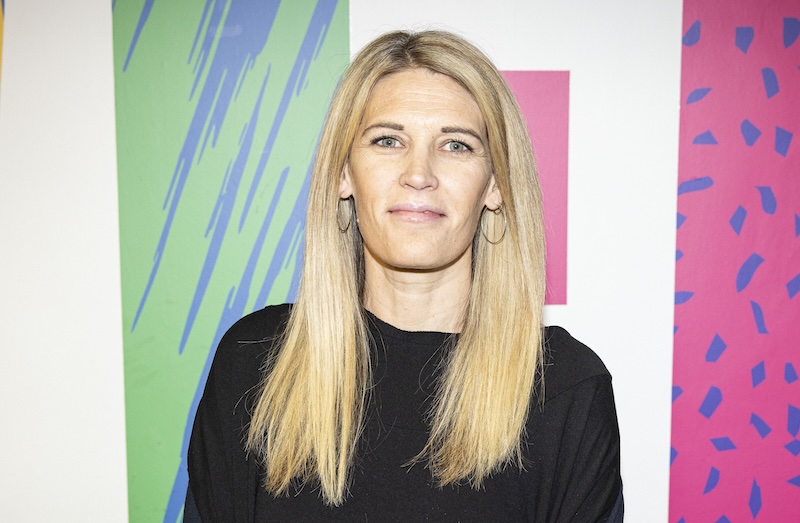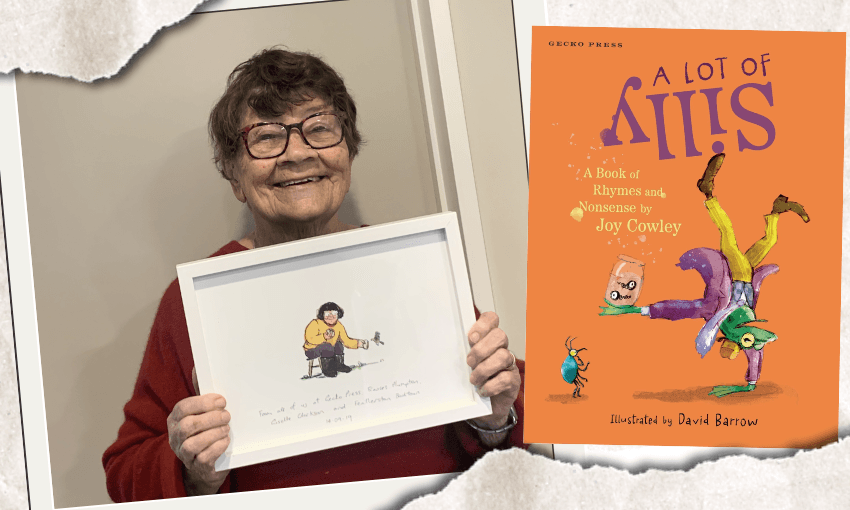From heartfelt dramas to portraits of local artists, portmanteau pictures and documentaries revisiting sometimes painful memories, there are plenty of Aotearoa-originated or backed movies debuting as part of this year’s Whānau Mārama: New Zealand International Film Festival.
Stuff to Watch reviewers Graeme Tuckett (GT) and James Croot (JC) have had the opportunity to preview a selection of the Kiwi titles coming to a big screen near you.
Supplied
When the Cows Come Home, Kāinga and Gloriavale are among the Kiwi films debuting at this year’s Whānau Mārama: New Zealand International Film Festival.
READ MORE:
* What We Do in the Shadows: Kiwi-inspired vampiric comedy really hits its stride
* The 2022 Emmy Awards’ top nominees (and where you can watch them right now)
* 10,000 BC: Shot in NZ, one of the 21st century’s worst blockbusters hits Netflix
* Mystic: TVNZ’s dark horse brings back memories of Kiwi kidult classics past
Supplied
A Boy Called Piano is about resilience, family and music as the river that carries our memories.
A Boy Called Piano (M)
This film is an astonishment. If you have never heard the story of Fa’amoana John Luafutu before, prepare to be moved.
He may be best known to the media as “Scribe’s dad”, but Fa’amoana is a testament to everything that was wrong with our systems of state care and the ways in which we treat troubled young men. Farmed out to boy’s homes at a young age, Fa’amoana endured everything imaginable.
His story has become a celebrated stage and radio play and its transition to film has been beautifully realised, with archival footage and dramatic recreations well interwoven.
A Boy Called Piano is about resilience, family and music as the river that carries our memories. It is a startling and poetic film. Do go and see it. – GT
Supplied
Geoff Dixon proves to be a marvellous narrator of his own story.
Geoff Dixon: Portraits of Us (E)
Geoff Dixon is an iconoclastic figure who has worked in many mediums across five decades. He is a wonderful colourist and a profoundly deep thinker, with a brilliant sense of humour to leaven the seriousness of his themes.
Dixon’s work speaks to extinction and to the damage we are wreaking on his beloved natural world, but it does so with a warmth, mischievousness and a child’s sense of wonder and awe at what he is depicting.
Often seated beside his old friend and collaborator Euan Macleod, Dixon talks, laughs, guides us through his life so far and is generally a marvellous narrator of his own story, even when tragedy visits.
With a soundtrack from Wellington icons Plan 9 and cinematography by Russell Milledge, Portraits of Us is a warm, moving and deeply likeable film. Very recommended. – GT
Supplied
Sharon Ready is a key figure in Noel Smyth and Fergus Grady’s Gloriavale documentary.
Gloriavale (TBC)
Lifting the veil on “New Zealand’s secret cult” and its fall from utopian ideal to Animal Farm-esque nightmare, this enlightening, heartrending, rage-inducing documentary follows former members as they battle for justice and reform from the outside.
Siblings John Ready and Virginia Courage reveal what life was like inside the West Coast “Christian Community” and how their respective banishment and escape impacted on the family members they left behind, as they help compile a series of court actions against what they believe are its abuses of human rights and flouting of labour laws.
While their mother Sharon’s testimony is revelatory, it’s the archival footage and more recent secret audio recordings that really resonate – and shock.
Far from the light entertainment of TVNZ’s wildly popular “specials”, Noel Smyth and Fergus Grady’s tale is an excellent, powerful primer on the history, controversy and concern surrounding Gloriavale. – JC
Supplied
Evocative and emotion-filled, Kāinga is a smart, sensitive, stunning collection of female-led Kiwi-Asian stories.
Kāinga (M)
Waru and Vai producers Kerry Warkia and Kiel McNaughton are back with another octet of powerful short stories.
This time the connection is a single house – 11 Rua Road in Tāmaki Makaurau, as we glimpse the experiences of eight women of various ages, and from a variety of Asian backgrounds, at different points from 1972 to the present day. There’s a young Iranian wife frustrated at not being able to engage in her true profession, a middle-aged Chinese daughter trying to make peace with her late, estranged father’s “other” family, a Tamil Eelam sister searching for long-buried memories and a Filipino nurse desperately trying to maintain contact with those back home.
Evocative and emotion-filled, this is a smart, sensitive, stunning collection of female-led Kiwi-Asian stories which cleverly chronicle our changing nation over the last 50 years. – JC
Supplied
Welby Ings’ Punch contains enough resonant moments to keep audiences engaged and moved.
Punch (R16)
Writer-director Welby Ings has had Punch in his mind for more than a decade.
In the present day, on Auckland’s wildly beautiful west coast, Jim is a promising boxer and a popular figure at the local high school. Jim’s new friend Whetu is maybe the only openly gay young man for miles around.
Jim’s dad, Stan – played by Tim Roth – walks a line between controlling his son in a way that might have worked a generation earlier – and letting the young man chart his own course. Stan’s ever present bottle of whisky isn’t helping him forge any sort of adult relationship with his son.
Punch contains enough resonant moments to keep us engaged and moved. And the cinematography from Matt Henley (Coming Home In The Dark) is typically exceptional.
It might be Roth’s name that sells the tickets, but it will be Jordan Oosterhof as Jim and Conan Hayes as Whetu – and Henley’s images that keep Punch in your memory. – GT
Supplied
Sarah May and Millie Van Kol star in Shut Eye.
Shut Eye (M)
Writer-director Tom Levesque’s feature debut follows one troubled young woman’s journey into the world of autonomous sensory meridian response (ASMR).
Struggling to make eye contact, let alone hold a conversation, Sierra (Millie Van Kol) seems ill-suited to her job persuading inner-city Aucklanders to donate to a conservation charity. Attempts to find a connection both in-person and online have also resulted in disaster – and humiliation.
As her mood worsens, a trip to the doctor sees her diagnosed with insomnia, an ASMR app suggested as something that might help. Among all the whisperers, chewers and quiet noisemakers, Sierra is smitten by Kookie (Sarah May). Seemingly kind, caring and generous with her time, Sierra is excited when their online relationship breaks out into the real, physical world.
An absorbing and atmospheric drama, this draws in elements of ‘90s female-led thrillers and more modern mumblecore to create something that feels very contemporary. – JC
Supplied
Unlike most compendium films, We Are Still Here doesn’t always delineate where one film ends and another begins.
We Are Still Here (M)
This Australian/New Zealand production is a compendium of eight short films from 10 directors.
Though the films are outwardly very different, taking place across centuries, between two countries – and many nations – and embracing genres from animation to war movie to futurist sci-fi with nods to Blade Runner, there is still a brilliant cohesion here.
We Are Still Here opens with a bold animated sequence, almost revisiting the story of Māui fishing up the Te Ika-a-Māui – before a reveal of just what is on that fish-hook.
The longest film of the collection – at 17 minutes – recounts one incident in the 1860s that segues into a matter-of-fact incorporation of the supernatural.
Unlike most compendium films, We Are Still Here doesn’t always delineate where one film ends and another begins. These films bear witness to what their companions are achieving. It’s a coup of editing and imagination that made me glad the rules of storytelling can still be overturned, by film-makers with something to say that needs to be heard. We Are Still Here is my favourite film of the festival that I have seen so far. – GT
Supplied
When the Cows Come Home: New Zealand farming hasn’t looked this beautiful or magical since Harry Sinclair’s The Price of Milk.
When the Cows Come Home (E)
Veteran documentarian Costa Botes’ first feature-length production in four years is a charming portrait of a gentle, soulful Kiwi and his bovine friends.
At first, Andrew Johnstone’s sole shtick appears to be his ability to corral his cattle without the need for working dogs or motorised vehicles and understanding their need to “paint their faces” and “dance”. But after meeting his secret weapons, the Krispie-loving matriarchs Tilly and Millie, Johnstone opens up about a very eclectic life. It’s one that has included a family tragedy, battles with authority at his Catholic boarding school, a marriage break-up, a successful foray into the New Zealand music scene, drug dependency and a career as a high-profile rock journalist that came crashing to a controversial end in 2015.
Botes generously allows his subject the space and time to eruditely share his story and New Zealand farming hasn’t looked this beautiful or magical since Harry Sinclair’s The Price of Milk. – JC
Kicking off in Auckland on Thursday (July 28 until August 7), this year’s edition of Whānau Mārama: New Zealand International Film Festival will also visit Wellington (August 4-14), Christchurch (August 5-14), Dunedin (August 11-21), New Plymouth (August 11-21), Masterton (August 17-31), Matakana (August 18-28), Hamilton (August 18-31), Tauranga (August 18-28), Hawke’s Bay (August 18-28), Palmerston North (August 18-28), Nelson (August 18-28), Timaru (August 18-28) and Gore (August 18-25).



















Discussion about this post